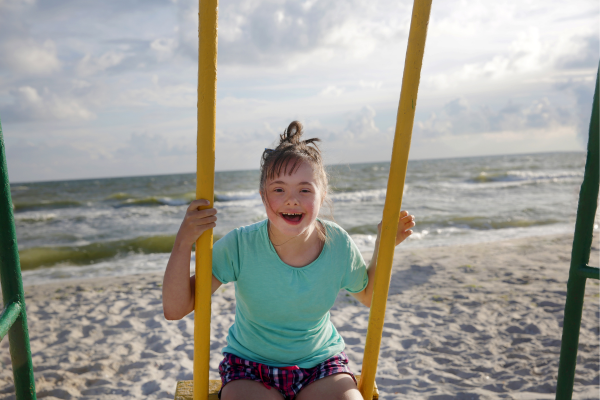Traveling with developmental disabilities can present unique challenges for individuals and their families. From planning ahead to navigating airports and flights, there are several considerations to ensure a smooth and enjoyable trip. In this article, we will explore helpful tips and strategies for traveling with developmental disabilities, with a focus on creating a stress-free experience for everyone involved.
Traveling with Developmental Disabilities:
When traveling with developmental disabilities, it is essential to plan ahead and be prepared. Start by researching the destination, including accommodations, transportation options, and any specific services or programs available for individuals with disabilities. This will help you tailor the trip and ensure a positive and inclusive experience for all.
It is also crucial to communicate with airline employees and inform them about your specific needs. This includes notifying the airline about any assistance or accommodations required during the screening process and boarding the flight. Providing important information ahead of time allows the airline staff to be prepared and make necessary arrangements to support you throughout the journey.
Pack All the Essentials You’ll Need:
When packing for a trip with someone with developmental disabilities, it is essential to include all the essentials they may require during their travels. This may include medication, medical equipment, comfort items such as favorite toys or blankets, and any necessary documents related to their condition.
Additionally, it is advisable to carry extra clothing, snacks, and drinks to cater to unique needs and unexpected situations that may arise during the trip. Having these essential items readily available helps ensure the comfort and well-being of the individual throughout the entire trip.
Consider Sensory Needs:
Individuals with developmental disabilities often have sensory sensitivities or preferences. To provide a conducive travel environment, it is important to consider these sensory needs. For example, noise-canceling headphones can be beneficial for those who are sensitive to loud sounds, and sunglasses or a hat can help reduce the impact of bright lights.
If possible, selecting airlines and airports that offer sensory-friendly programs and accommodations can help create a more relaxed and comfortable travel experience for individuals with developmental disabilities.
Be Mindful of Sensory Overload:
Airports and airplanes can be overwhelming environments for individuals with developmental disabilities. The bustling crowds, loud announcements, and various stimuli can easily lead to sensory overload and increased anxiety.
To mitigate the effects of sensory overload, it is helpful to create a calming and predictable environment. This can be achieved by providing visual schedules, headphones, or comfort tools that aid in regulating sensory input. Additionally, choosing less busy travel times and avoiding peak travel periods can contribute to a more peaceful experience.

Be Flexible and Patient:
When traveling with developmental disabilities, it is essential to maintain a flexible and patient mindset. Unexpected challenges or delays may arise, requiring adjustments to plans and timelines. By embracing flexibility and patience, you can alleviate stress and create a more enjoyable experience for everyone involved.
Remember that individuals with developmental disabilities may require additional time and support to navigate the airport, board the plane, or adjust to new surroundings. Providing them with the necessary space and understanding can make the journey smoother and more comfortable.
How Intellectual and Developmental Disabilities Impact Travel:
Intellectual and developmental disabilities can impact travel in various ways. Individuals with these disabilities may have difficulty with transitions, changes in routine, or new environments. It is important to prepare for these challenges by familiarizing the individual with the travel process, discussing the upcoming trip, and providing visual supports or social stories to help them understand what to expect.
Additionally, it is essential to consider any specific medical conditions or special needs that may require attention during the trip. This may involve coordinating with healthcare professionals, packing necessary medications, and ensuring access to medical assistance if needed.
Educate Airline Employees About Your Needs:
To ensure a smooth travel experience, it is crucial to educate airline employees about the specific needs of individuals with developmental disabilities. This can be done by communicating your requirements during the booking process, contacting the airline ahead of time, or speaking directly with flight attendants during the journey.
By sharing important information about the individual’s disability, preferred communication methods, and any necessary accommodations, you can help the airline staff better understand and meet their needs. This collaboration between passengers and airline employees promotes inclusivity and enhances the overall travel experience.
Utilize Supportive Services and Programs:
Many airlines and airports offer supportive services and programs designed to assist passengers with disabilities. These services may include wheelchair assistance, priority boarding, dedicated support personnel, and special seating arrangements. Taking advantage of these offerings can significantly enhance the travel experience for individuals with developmental disabilities and their families.

Utilize Specialized Programs and Services:
Various programs and services cater specifically to individuals with developmental disabilities and their families. These services can be instrumental in ensuring a smooth and enjoyable travel experience. For example, some airlines offer “wings” programs where children with developmental disabilities can familiarize themselves with the aircraft and flight experience before their trip. These programs provide a hands-on approach to reduce anxiety and build confidence prior to boarding the actual flight.
Additionally, there are travel agencies and organizations that specialize in planning trips for individuals with disabilities, including developmental disabilities. These agencies have expertise in identifying suitable accommodations, transportation options, and activities that cater to the unique needs and preferences of travelers with developmental disabilities. Utilizing these specialized programs and services can provide invaluable support and guidance throughout your journey.
Involve Healthcare Professionals:
In certain cases, it may be necessary to involve healthcare professionals in the travel planning process. Consulting with the individual’s doctor or therapist can help address specific concerns, provide important medical information, and offer guidance on managing any potential challenges. Healthcare professionals can offer insights into the individual’s unique needs, recommend accommodations or strategies to alleviate stress, and provide any necessary documentation for travel.
By involving healthcare professionals, you can ensure that the trip is well-suited to the individual’s physical and emotional well-being. They can also provide guidance on managing medications, adjusting routines, and addressing any potential medical emergencies that may arise during the trip.
Communicate with Family Members or Caregivers:
If you are traveling with a family member or caregiver who provides regular support to the individual with a developmental disability, open and ongoing communication is key. Discussing the travel plans, sharing important information, and coordinating responsibilities can help ensure a smooth and stress-free journey.
Communicate any specific needs or preferences of the individual with developmental disabilities to your family members or caregivers, as they can assist in implementing strategies and accommodations during the trip. Working together as a team enhances the overall travel experience and enables efficient support throughout the journey.
Familiarize Yourself with Airline Policies:
Understanding the policies and guidelines of the airline industry regarding travelers with disabilities is crucial for a successful trip. Each airline may have its own set of protocols, so it is important to research and familiarize yourself with their specific requirements and procedures.
For example, some airlines may require advance notification for specific accommodations, such as wheelchair assistance or seating arrangements. Others may have restrictions on certain medical
Furthermore, it is important to explore available resources such as informational websites, online forums, and support groups focused on traveling with developmental disabilities. These platforms provide valuable insights, firsthand experiences, and additional tips to help you prepare and navigate your journey more effectively.

Conclusion:
Traveling with developmental disabilities requires careful planning, preparation, and understanding. By following the tips outlined in this article, you can create a travel experience that is safe, comfortable, and inclusive for individuals with developmental disabilities and their families.






